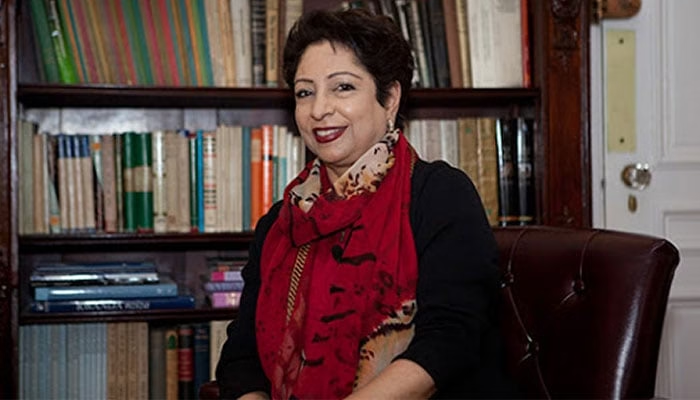The Syrian conflict has reached a critical juncture as rebels successfully capture Damascus, marking a turning point in the country’s turbulent history. The rapid advancements of the Syrian rebels have sent shockwaves across the Middle East, leaving governments and analysts grappling with the implications. Former ambassador Maleeha Lodhi described this development as a political earthquake that has upended the region’s dynamics and delivered a significant blow to the Syrian government and its allies.
The Unprecedented Collapse of the Syrian Army
Maleeha Lodhi, Pakistan’s former permanent representative to the United Nations, highlighted the unexpected refusal of the Syrian army to confront the rebels. No one had any idea that the Syrian army would refuse to fight the rebels at all,she remarked, emphasizing the unprecedented nature of the situation. This strategic failure allowed the rebels to swiftly gain control over Damascus, challenging Bashar al-Assad’s grip on power.
Lodhi further noted that the collapse of Assad’s regime would bring profound shifts in the political and military balance of the Middle East. Such an event would not only destabilize Syria further but also weaken its alliances, creating ripples that could reshape regional geopolitics.
Historical Context: Lessons from Iraq, Libya, and Afghanistan
Middle East affairs expert Mansoor Jafar provided a broader perspective on regime-change efforts in the region. Speaking to Geo News, Jafar drew parallels between Syria and countries like Iraq, Libya, and Afghanistan, where similar uprisings aimed at removing entrenched governments.
In Iraq, Libya, and Afghanistan, regime change was achieved, but stability remained elusive,Jafar explained. He predicted that Syria might face similar challenges post-conflict, including political fragmentation, governance issues, and continued violence. These difficulties have often stemmed from the lack of a cohesive plan to ensure stability after overthrowing existing regimes.
The Rebel Strategy: Command and Discipline
International affairs expert Huma Baqai offered insights into the success of the Syrian rebels. She credited their rapid territorial gains to their strong command structure and disciplined approach.
The command and discipline of the Syrian rebels are very good, which is why they quickly captured various cities and pushed back the Syrian army,Baqai explained. This level of organization has enabled the rebels to outmaneuver a larger and better-equipped Syrian army, showcasing the effectiveness of their strategy.
Baqai expressed optimism about Syria’s future, stating, Hopefully, Syria will move towards elections. However, she acknowledged that transitioning to a stable democratic process in the aftermath of such a significant upheaval would not be without its challenges.
Implications for the Middle East
The fall of Damascus signifies more than just a victory for the rebels; it symbolizes a broader shift in the power dynamics of the Middle East. Syria has long been a linchpin in regional politics, and the potential collapse of Assad’s regime raises questions about the future of its alliances, particularly with Iran and Russia.
For Assad’s allies, this is a significant blow, as their influence in the region could diminish drastically. Meanwhile, neighboring countries are bracing for the potential spillover effects, including an influx of refugees and increased sectarian tensions.
The Path Ahead
While the capture of Damascus marks a historic moment, it also sets the stage for new challenges. Stability in Syria will depend on how effectively the rebels can transition from military success to political governance. The need for international support, both in humanitarian aid and political mediation, will be crucial in preventing Syria from descending further into chaos.
The international community must also address the broader implications of this upheaval. The power vacuum created by Assad’s fall could attract extremist groups, complicating efforts to restore order. Moreover, the shifting alliances and rivalries in the region may lead to prolonged instability.
The capture of Damascus by Syrian rebels marks a turning point not just for Syria but for the entire Middle East. As former ambassador Maleeha Lodhi aptly described, this event is a political earthquake that will have far-reaching consequences.
While the rebels’ success showcases their strategic prowess, the path to a stable and democratic Syria remains fraught with challenges. Lessons from Iraq, Libya, and Afghanistan serve as stark reminders of the difficulties in rebuilding nations after regime change.
The world watches as Syria navigates this pivotal moment in its history, hoping that it can emerge from the ashes of conflict as a unified and stable nation. Whether it achieves this goal will depend on the resilience and vision of its leaders and the support of the international community.



